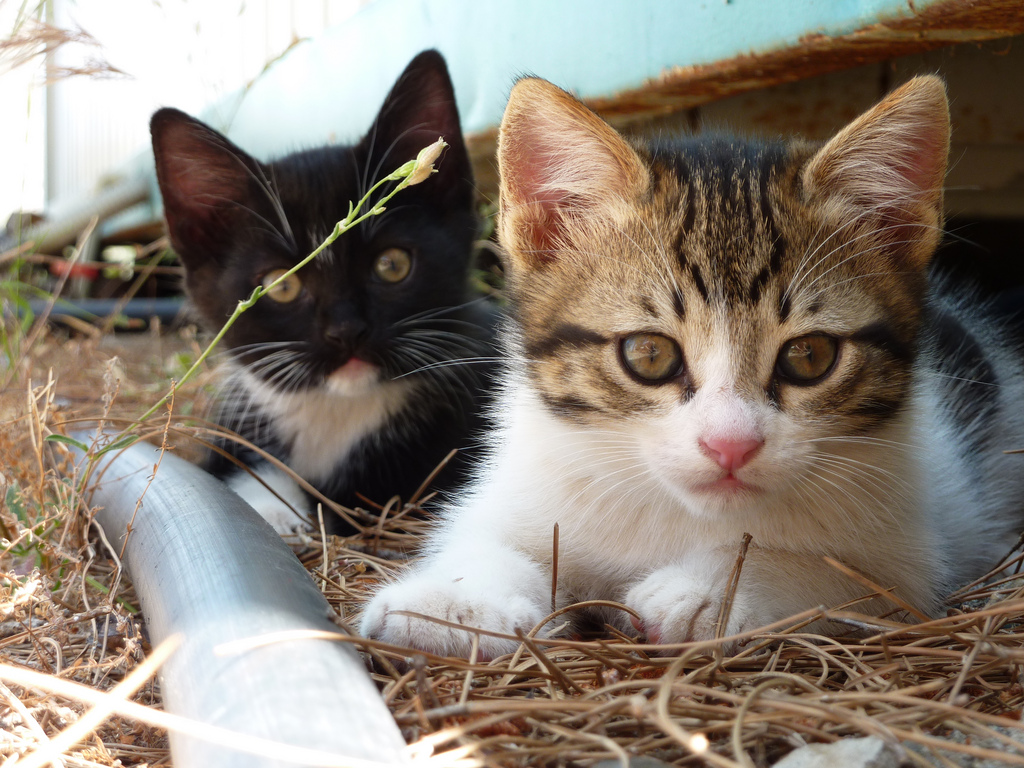
“Kittens!” (CC BY 2.0) by jameswragg
When you first consider buying a pet, it probably doesn’t occur to you to think about how much it’ll cost you over a lifetime. You probably worry about whether it’ll suit your lifestyle – no one wants to leave a puppy home alone all the time – and whether you’ve got enough space for a giant house rabbit to live in your humble abode. But did you know that a dog could cost you £15,382 over its lifetime? Even a tiny little hamster could set you back nearly £500! This is according to the latest study by Voucherbox, which also found that, surprisingly, it’s more expensive to feed a corn snake each year (£250) than a cat (£167)!
So how can you make sure you don’t have to shell out a fortune keeping your dream pet?
Go to a rescue centre or animal shelter
As well as saving you money, this is actually a great way to do a good deed too. It can be extremely expensive to buy a pet from a pet shop or a breeder, so consider taking care of an animal that deserves a second chance and a good, loving home.

“RSPCA” (CC BY 2.0) by zorilla
Take out adequate insurance
This is probably most relevant to dog and cat owners, although those with other furry friends could also benefit from insurance. The cost of taking your pet to the vet for things other than routine procedures can add up, so you should consider shopping around to get the best deal on a reasonably priced policy to protect you from any unwelcome surprises.
Get health problems treated quickly
While the vet trip might be expensive, it’s definitely worth going for regular checkups to make sure your pet is healthy. This is important for your furry friend’s wellbeing, but it can be helpful to your bank account as well. Just like humans, it’s best to get a diagnosis quickly. So if you notice a problem, get it checked out.
This way, you may be able to get it treated with less medication or, in some cases, without otherwise expensive surgery. But if you’d left the problem to get worse, the treatment would cost more.
This is also important with daily care. If you notice fleas, for example, get your pet treated as quickly as possible. You may also need to look into fleas control for your house, otherwise your pet will just get them again. This is a one-time cost, but it’s cheaper than leaving it to fester.
Make the most of friends and neighbours
If you’ve got nice neighbours or friends who live close by, always try to use them as your first port of call if you need someone to keep an eye on your pet. The cost of kennels when you’re on holiday can really add up and you might just need someone to put some cat food in a bowl a couple of times a day. There are even professional ‘house sitter’ services that can look after an animal for you and the added bonus is that your house will be lived in while you’re away.

“Dwyfor Ranch cute bunnies” (CC BY-SA 2.0) by jennicatpink
Avoid pet shops, when possible
There are so many things that you’ll find somewhere cheaper than in a pet shop. Look in charity shops for cheap toys that your pet might love. Or even look online for ideas for homemade toys – you’d be amazed at how many blogs and websites have thrifty suggestions to consider. Recycling can be a great way to save money and entertain your pets too. Your guinea pig may find your discarded delivery box a great hidey-hole or your hamster may really appreciate the shredded paper from your office.
Buy in bulk
As with so many things in life, if you buy more, you’ll usually end up paying less. If you’ve got enough storage space, definitely stock up whenever you see a great deal on and you’ll almost certainly be rewarded for buying bigger packets of everything from sawdust to food that you need for your pet.
The figures of how much pet ownership costs can look terrifying, but these are just a few of the simple ways you can save money. Definitely, don’t scrimp on the important things – your pets still need their annual jabs and may need to visit the vet at some point or another – but your pet’s quality of life most definitely isn’t dictated solely by your pay packet.


Trackbacks/Pingbacks